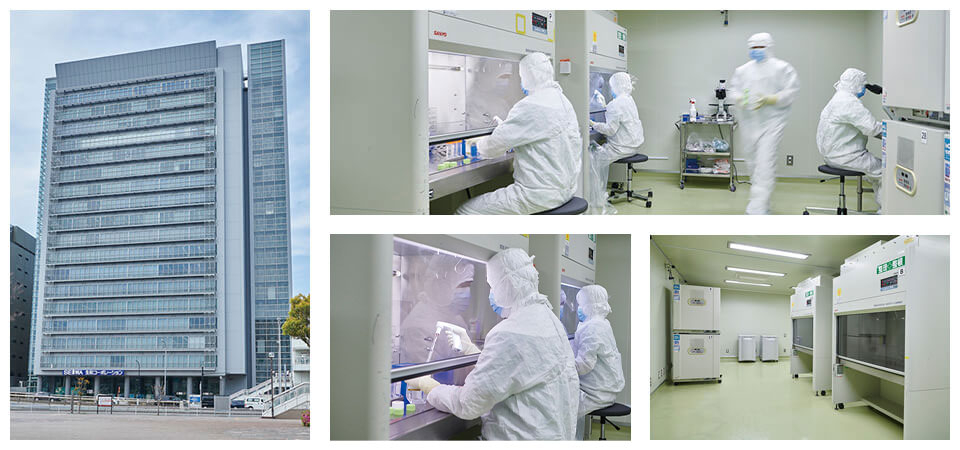Endogenous Biological Microparticles (EBMs): Research & Production
Product development

We manufacture Ainprose™ in our own product manufacturing facility.




What is an endogenous biological microparticle (EBM)?


Ainprose™ contains more than 2,000 bioactive substances, which act on cells to promote tissue regeneration, and there are growing expectations for its effectiveness.
Growth Factors: Bioactive proteins contained in endogenous biological microparticles (EBMs)
EGF Epidermal Growth Factor
These growth factors are composed of amino acids that promote the production of new cells, which can act on various cells to encourage growth of cells, regulate proliferation, and make repairs.
VEGF Vascular Endothelial Growth Factor
These growth factors play a key role in angiogenesis and induce cell division and differentiation, which causes the formation of new blood vessels that branch off from existing ones.
TGF-β Transforming Growth Factor
These growth factors regulate cell proliferation, growth, differentiation, and motility, playing key roles in the reconstruction, wound healing, inflammation, and immunity of cellular tissues.
HGF Hepatocyte Growth Factor
These growth factors promote the proliferation of hepatocytes involved in the synthesis and storage of proteins, the conversion of carbohydrates, and the detoxification, denaturation, and elimination of cholesterol and xenobiotics.
KGF Keratinocyte Growth Factor
These growth factors are mitogenic (induce cell division) with angiogenesis and wound healing effects, which assist in the production of keratin, an essential ingredient the formation of hair and skin.
IGF Insulin Growth Factor
These growth factors are produced by the growth hormone which is secreted in large quantities during puberty. They function in a variety of ways, including the promotion of cell proliferation/differentiation, and protein assimilation.
PDGF Platelet-Derived Growth Factor
These growth factors are produced by various cells such as epithelial and endothelial cells. They are involved in regulating the migration and proliferation of mesenchymal cells, which helps promote the growth and regeneration of damaged tissues.
TIMP Tissue Inhibitor of Metalloproteinase
TIMP restrains the degradation of tissue collagen and elastin by MMPs, and helps prevent fibrosis.
*MMP (matrix metalloproteinase) is a type of enzyme that degrades intercellular proteins such as collagen, proteoglycan, and elastin. Abnormal MMPs are said to be involved with the onset of a wide range of diseases such as tumors, inflammation, multiple sclerosis, and periodontal disease.
FGF Fibroblast Growth Factor
These growth factors are involved in angiogenesis and wound healing.
They play key roles in the proliferation and differentiation of a wide range of cells and tissues.
IL-7 Unterleukin-7
These regulating factors are bioactive substances that promote cell proliferation, and are keys to the survival, proliferation and maturation of cells.
GM-CSF Granulocyte-Monocyte Colony-Stimulating Factor
These growth factors promote cell survival and activation. They are hematopoietic growth factors that promote the differentiation into pluripotent hematopoietic stem cells and function as immunoregulatory factors.
EPO Erythropoietin
These growth factors are mainly produced in the kidneys, and are one of the hematopoietic factors that promote the production of red blood cells.
TSG-6 Anti-Inflammatory Factor
These growth factors are gaining attention for suppressing inflammation, and as a treatment for arteriosclerosis.
TPO Thrombopoietin
These hematopoietic factors are involved in the proliferation and differentiation of proplatelets, and are considered to be key factors in the production of hematopoietic cells.

